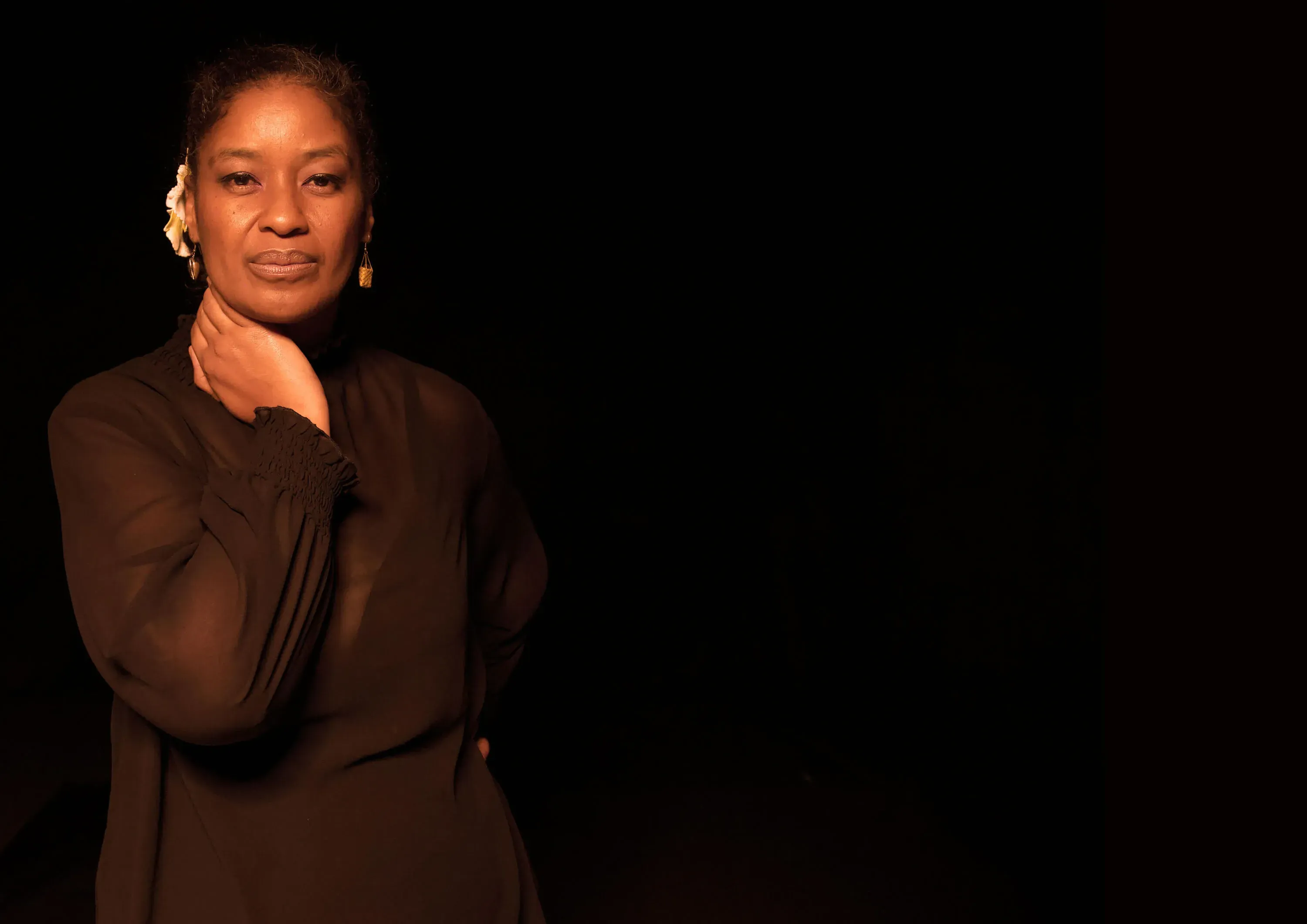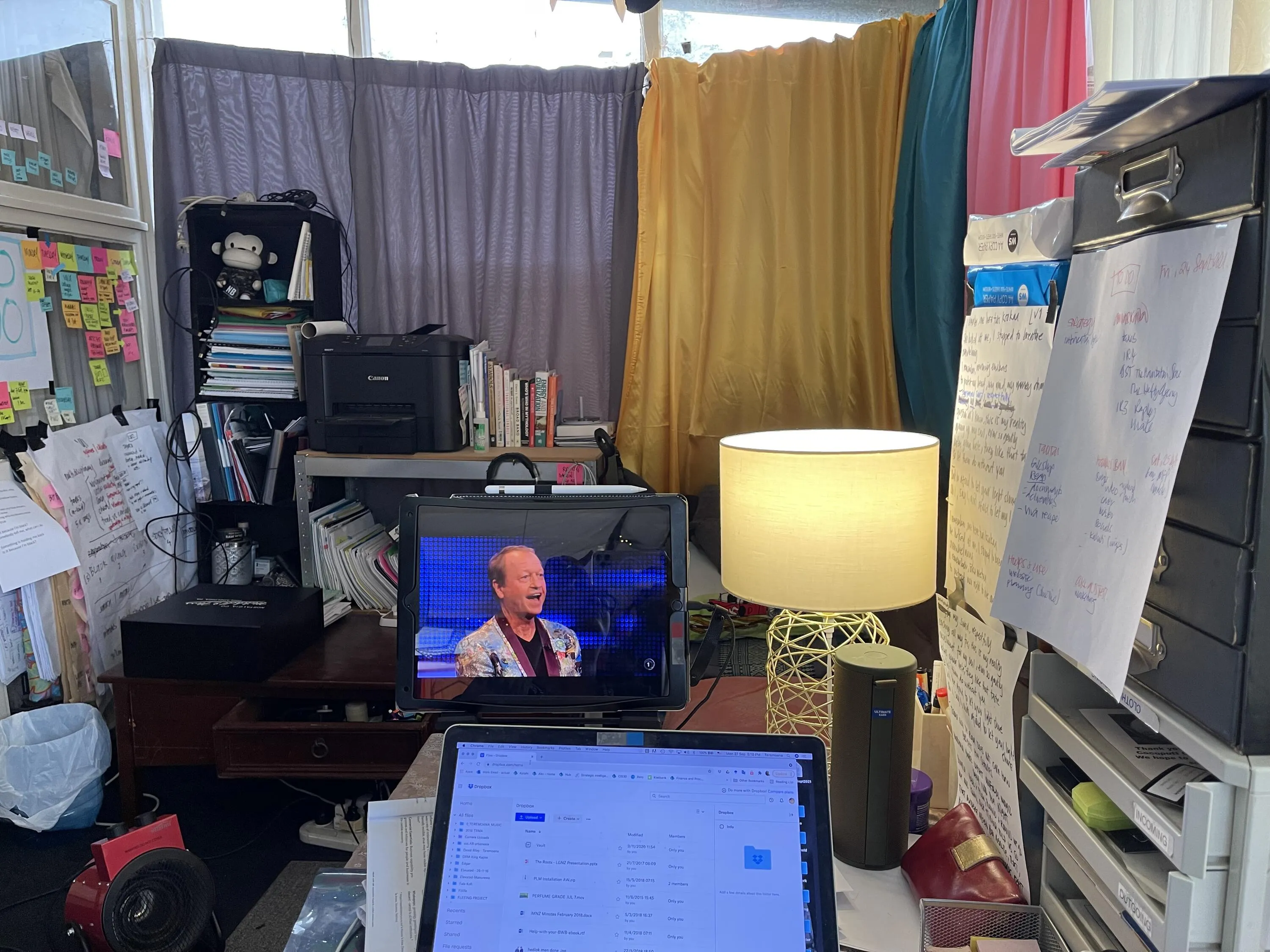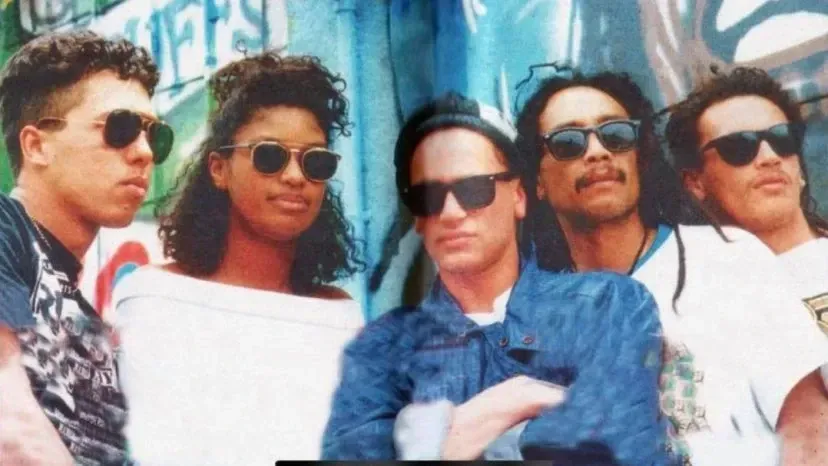The Redefinition of a Hall of Fame Creative Career

Award-winning musician Teremoana Rapley has stepped into her own power.
After 30 years in the industry, she is working on a powerful debut solo album, Daughter of a Housegirl. She makes a distinction between what the industry demands, and her purpose as an artist.
“It's about looking within, and expressing myself”.
Rapley’s clarity stems from experience and her outstanding contribution to music; in 2018 she was inducted into the Aotearoa Music Hall of Fame, and won the Legacy Award with Upper Hutt Posse. She was recognised with success at the Taite Music Prize with Upper Hutt Posse in 2016 - and again with Moana and the Moahunters in 2019. She has collaborated with performers like King Kapisi, Che Fu and Dam Native, and been a support act for global stars like Ben Harper and Talib Kweli.
Rapley, who is Cook Islands/Jamaican and born in Aotearoa, tells The Big Idea “I've redefined myself not as a singer/songwriter but as a Black Moana Sovereign Storyteller. That's something that I've coined. I put it on myself.”
When I speak to her, she has just completed a two-week Fale-ship residency with Tautai which she says was “absolutely” useful: “being a creative, it's not very often that you get an opportunity to really think about your practice.”
"The album that I've been focused on for the last 34 years or so, obviously I'm not in a rush. So with my fale-ship, I focused on all the creative elements that are part of working on my music".
Making it big - then getting out
When Upper Hutt Posse released their first single, E Tu It was Aotearoa’s first rap. It was followed by That’s the Beat in 1990. In the music video, Rapley is a cool, happy teenager dancing in a bright, yellow jacket.
Rapley was only 14 when she joined the band.
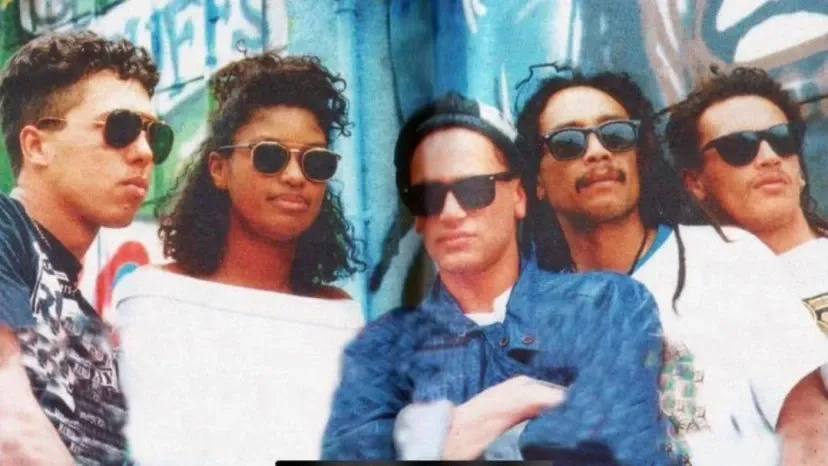
Teremoana Rapley in her Upper Hutt Posse days. Photo: File.
“I got taken into this industry that tried to exploit me as a commodity. At a young age, I realised that's not what I want to do. So I stepped out of that space.”
She says the commercial nature of the music industry means that artists are not sufficiently valued: “it focuses on the business side and it gives very little love or support to the human being that is creating all this magic - the so-called magic - right?”
She made the decision to leave the music industry after over ten years, saying to herself, “Yo, I'm getting out of here. This is horrible.”
The antidote is understanding yourself holistically as an artist, instead of through a prescriptive industry lens. She says, “What I do is I express myself through music. I'm not a pop star. I'm not an R&B star. I'm not a rap star”.
Rapley pauses, “I'm the daughter of a housegirl. I'm a mother, I'm a grandmother, I'm a sister, I'm an aunt. And I express myself through music”.
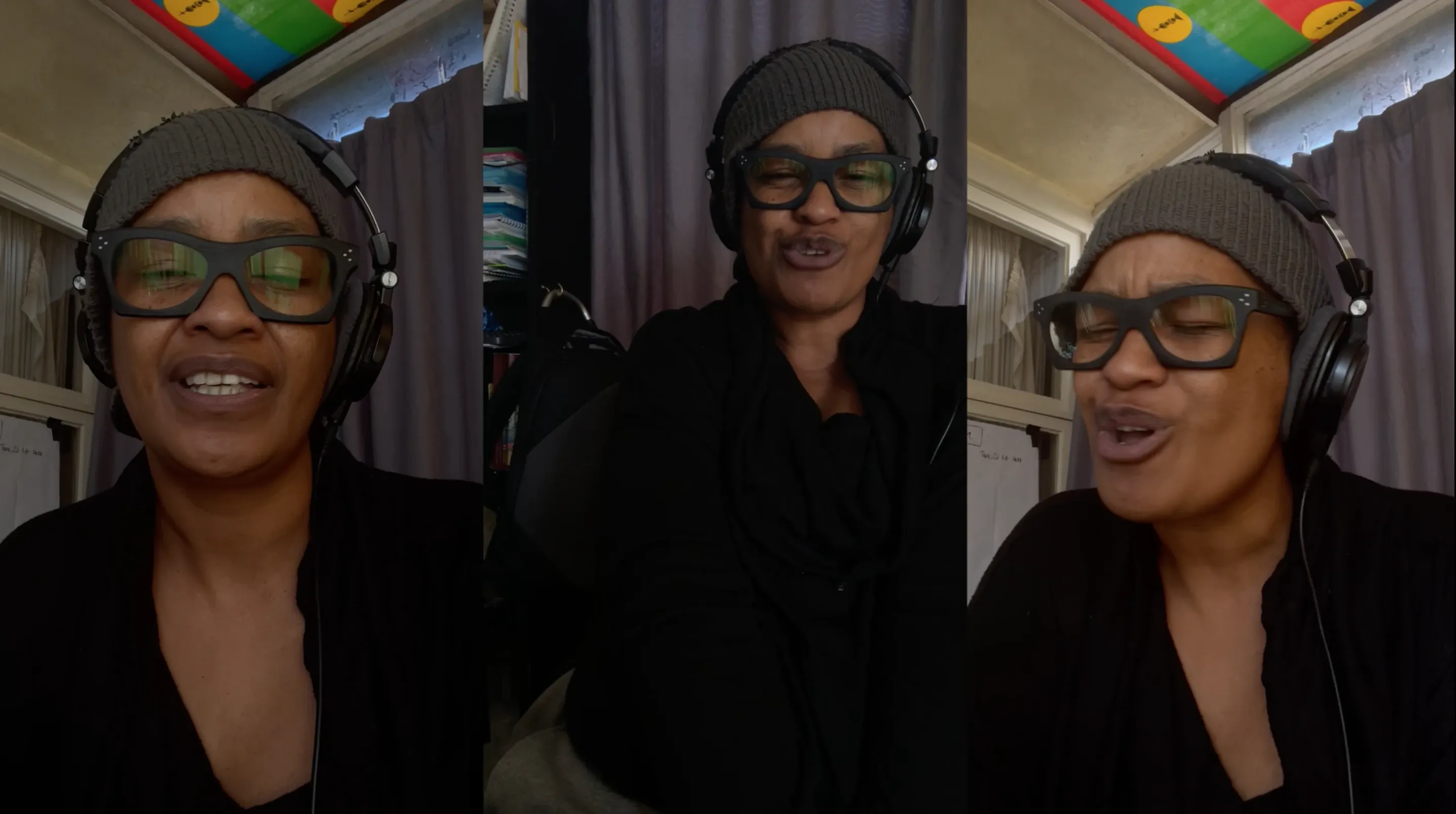
Teremoana Rapley shares her creative talents during her Tautai Fale-ship residency. Image: Supplied.
Anti-racism seems like a vital thread throughout Rapley’s works. Songs like Upper Hutt Posse’s E Tu, and Moana and the Moahunters hit Black Pearl spoke to racism in Aotearoa. Her early single Beautiful People calls for cultural pride amongst Moana people. In 1995, she released a mesmerising version of Nina Simone’s Four Women.
When I asked Rapley about the nature of her works, she was adamant that it is not a political statement. She says, “My creative work is an expression of what I am experiencing. It just coincides with how people consciously or unconsciously view, or stereotype.”
She says that in the music industry, political statements easily become co-opted into marketing. “It's about what can you grab from a conscious movement.” Instead, she believes it is important for the artist to have an authentic connection to the cause they are amplifying. She says the solution for artists is simple: “You do you.”
Good things take time
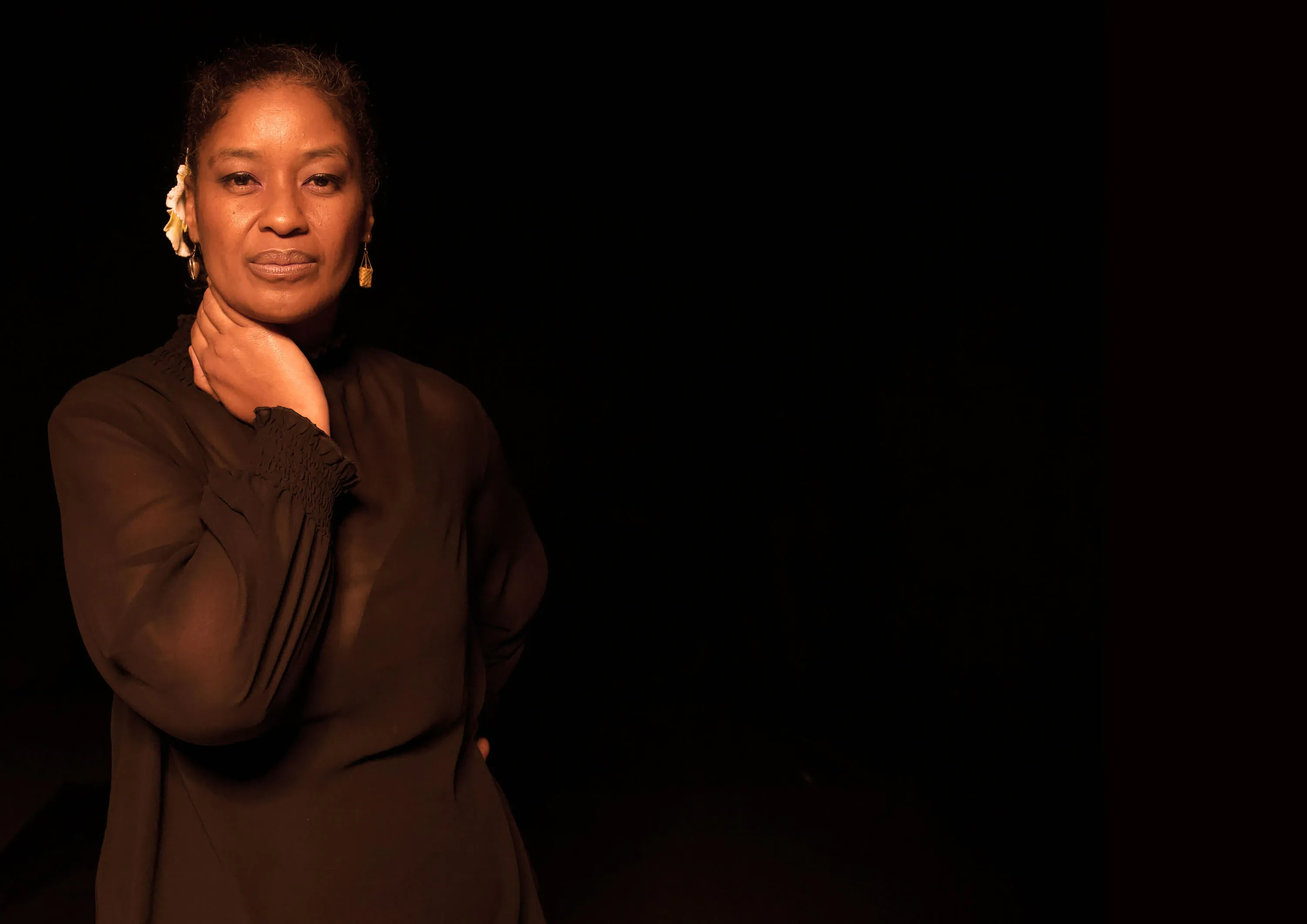
Teremoana Rapley. Photo: Supplied.
The journey to create Daughter of a Housegirl is still ahead of her. Like most creatives, Rapley has had to contend with the pressures of maintaining a day job to pay the bills. She has raised four sons. She says, “I have an album that I would like to finish. That's what I'd like to do. And I haven't finished an album yet. I have many, many songs.”
Rapley’s songwriting process is dynamic. Sometimes, she will start writing lyrics, and then create a tune. Other times, she’ll start with a beat, and then write to it. “Whatever happens, happens. I'm not trying to force it to be one way or another.”
She has released a soulful single, What’s Going On. In the video, she wears a black, satin gown that conjures colonial dress. Her honeyed vocals are juxtaposed with confronting lyrics and resonant bass. She sings, “Access to knowledge is literally at your feet still we choose to ignore”. Her hands turn gracefully.
Changes in who Rapley is as an artist means some disappointment from fans expecting her earlier works. She had a show in Wellington where some of the audience “rolled with it” but others didn’t get it.
She says, “they were probably expecting whatever they wanted. I was in my twenties when I last released my music as a solo artist. I'm almost 50, I'm not ashamed. I’ve changed. I'm not going to come out with stuff that I was doing in the 90s.”
It’s about knowing who she is, and operating from her creative purpose - highlighted by her Fale-ship mahi: “I'm expressing myself, I'm opening up my soul to these people. I'm opening up my heart. If they don't get it then they don't get it.
“I'm creating my own vā.”
Teremoana Rapley’s highly anticipated debut album, Daughter of a Housegirl is set for release in 2022.
